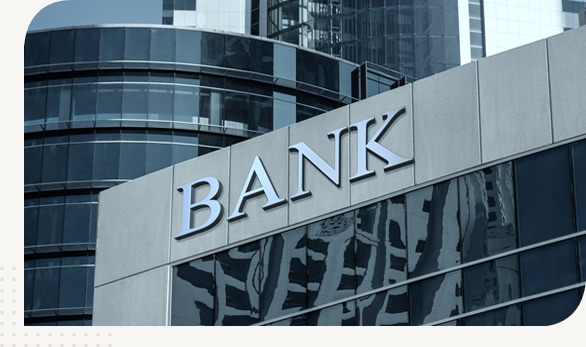The Lowest Rates
Bank Statement Loans
Designed to help self-employed borrowers who do not have traditional W-2 income qualify for a mortgage by demonstrating their ability to repay a mortgage through their bank deposits.

How a Bank Statement Loan Works
3 Important Things to Know
No Tax Returns Needed
Instead of using tax returns, we will use your personal or business bank statements to determine your monthly income.
Gross Income Calculation
We will review 12 or 24 months of your bank statements and calculate what your average monthly deposits come to.
Expense Ratio
Depending on the type of business you operate, we will use an expense ratio of 15 to 50% to determine your qualifying income.
Loan Qualifications
Here are a few important factors to consider when it comes to our bank statement loans.
Credit Score
A minimum credit score of 620 to 660 will be required depending on the bank statement loan you choose.
Down Payment
A down payment of 10% to 20% will be required depending on the bank statement loan you choose.

Work History
A two year self employment history is typically required, but exceptions can be made.
Max Loan Amount
The maximum loan amount for any of our bank statement loan programs is $3.5M
Property Uses
Your intended use can be for a primary residence, second home, or investment property.
Program FAQs
Answers to commonly asked questions about our bank statement loans.
What is a bank statement loan?
A bank statement loan is a type of mortgage that allows borrowers to qualify for a home loan using their bank statements instead of traditional income documentation such as W-2s and tax returns. These loans are designed primarily for self-employed individuals who often have legitimate income but may not show enough taxable income on paper due to business write-offs or complex tax structures.
Bank deposits over a specified period of time (usually 12 or 24 months) are reviewed to determine consistent cash flow and the borrower's ability to repay the loan.
Who qualifies for a bank statement mortgage?
Bank statement loans are geared toward borrowers with non-traditional income sources. This many include business owners, freelancers, consultants, and independent contractors who do not receive W-2 income. To qualify, potential borrowers will need:
- 12-24 months of consecutive personal or business bank statements
- Good credit (often in 620-700+ range)
- A solid down payment of 10%-20% (depending on credit and other factors)
- Proof of being self-employed for at least 2 years (sometimes 1 year with prior related work experience)
How are income and deposits calculated for qualification?
Instead of using tax returns, income is based on average monthly deposits into the borrower's bank account. The exact method varies:
When using personal bank statements, lenders typically total all eligible deposits over 12 or 24 months, then divide by the number of months to determine qualifying monthly income.
When using business bank statements, not all deposits translate directly into income (businesses have expenses) which means lenders use an expense factor to determine income. This is usually a percentage - commonly 50% of deposits are counted as income unless the borrower's CPA can provide a letter verifying a different expense ratio.
Example: If business deposits average $20,000 per month and a 50% expense factor is applied, the borrower's qualifying income would be $10,000 per month.
Can I use personal or business bank statements?
Yes, you can typically use either personal or business bank statements, depending on how you manage your finances:
Personal statements are best if you deposit all business income into a personal account or consistently transfer funds there. 100% of eligible deposits can typically be counted as income.
Business statements are used if most revenue stays in the business account.
Can I use a bank statement loan to refinance a mortgage?
Yes, bank statement loans can be used for both purchases and refinances. Refinance options include:
Rate-and-term refinance: Replacing your current mortgage with a lower rate and/or better loan features.
Cash-out refinance: Tapping into your home's equity by refinancing for a larger amount than your current loan balance and receiving the difference in cash.
What ownership percentage must I have in the business?
You should own at least 25% of the business in order to use business bank statements to qualify.
If you own less than 25%, you likely will not be able to use business statements since your access to business funds is limited. In those cases, you'd likely need to use personal bank statements instead.
